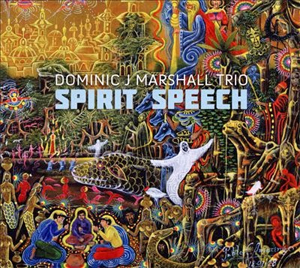Now is the time for fresh starts, it seems. You could say it’s a new beginning (of sorts) for this column, seeing as I’ve been off radar for a while, nursing a fractured elbow. Elsewhere, it’s great to hear another jazz, ahem, institution is reactivating its operations. The house that John Coltrane built – that’s right! – Impulse is scheduled to release its first LP since the late 1990s. On 15th July, it will release Viper’s Drag, a new album by carrier of the New Orleans stride and R&B torch, Henry Butler – who, funnily enough, previously rejuvenated the label back in 1986 – and brass-playing extraordinaire Steve Bernstein. Dormant for nearly a decade, the label, who gently marshalled John Coltrane’s spiritual questing in the 60s, has also announced a slew of new releases alongside Butler and Bernstein’s new cut. A varied crew of pianists including Kenny Barron, Rodney Kendrick and Randy Weston will be launching fresh jams via the label, as will the magisterial triumvirate of bassist Stanley Clarke, violinist Jean-Luc Ponty and guitarist Biréli Lagrène.
While we’re on the subject of fresh slates, it’d be rude not to mention the return of legendary, irreverent UK big band, Loose Tubes. A 21-strong rag-tag crew featuring many of the UK’s most influential players, including Django Bates, Iain Ballamy and Chris Batchelor, the band has been a breeding ground for for the Mercury-nominated likes of Polar Bear (who feature original Tuber Mark Lockheart) and many other illustrious British jazz projects. In their 80s heyday, the band were famed for leading Ronnie Scott’s audiences around Soho, appearing on Terry Wogan’s TV chat show and raising spirits at anti-nuclear demos. The full roster of members, some of whom are based in such far-flung destinations as Denmark and Brazil, will reunify at the Cheltenham Jazz Festival on 3rd May, and later at the aforementioned Soho hotspot 5th-10th May, where they’ll unveil four new tunes commissioned by BBC Radio 3.
Meanwhile, come a little bit closer, and get friendly with some of the best jazz (and not so jazz) new releases reviewed below.
Dominic J Marshall – Spirit Speech
(F-IRE)

Modern piano trios are ten a penny. It seems jazz has become so inundated with middling EST-alike outfits that many simply get swept under the carpet, as the jazz masses zero in on threesomes with an edge, such as Go Go Penguin, The Necks and Phronesis. But Scottish-born, Amsterdam-based young composer Dominic J Marshall is hardly in danger of blending in with the wallpaper. No staid piano classicist, Marshall and his sparky compositions stand out like, well, a Pablo Amaringo painting – the ayahuasca-fuelled Peruvian artist whose work features on the cover of Spirit Speech and its predecessor, 2012’s Icaros – amid miles of showroom conventionalism. Like Amaringo’s prints, Marshall’s tunes are labyrinthine and fine in detail. Still only 24, he’s clearly a cerebral thinker and something of a polymath; in the past he has quoted artists as diverse as Herman Hesse, Alejandro Jodorowsky and J.S. Bach, and covered jazz heroes (Thelonious Monk) and fleet-fingered folkies (Nick Drake) alike.
Unlike Icaros, much of which seemed to sing in praise of hip-hop and electronica, Spirit Speech digs deep into Marshall’s acoustic jazz and classical roots. Supported by the restless and sensitive rhythm section of bassist Tobias Nijboer and drummer Jamie Peet, he explores Monk-like jaggedness on ‘Book Of Machines’, while ‘Unflinchingly’ sounds like a Bill Evans ballad tugged briskly into the 21st century. A future star is reborn.
Tim Hegarty – Tribute
(Miles High)

Paying homage to your heroes is a rite most (if not all) jazz musicians are obliged to observe. Some, like modern piano guru Brad Mehldau, are given to mischieviously deconstructing and reconstructing their idols’ hits. Others, in the case of smooth-toned tenorist Tim Hegarty, prefer to pay their dues more like how bourbon purists like their Wild Turkey served – i.e straight. Indeed, Tribute is as straightforward as the title implies, but that doesn’t mean to say it’s in any way bland or lacking personality. On the contrary, Hegarty’s broad sound, which conjures the restless spirits of Dexter Gordon, George Coleman and Michael Brecker, is as rich and smoky as the aforementioned tipple, and his seasoned backline have character to burn.
Hegarty has enlisted a veteran crew for this thanksgiving project, presumably to conjure that authentically warm, open-ended feeling of classic blowing sessions of the 50s and 60s – and it’s worked a treat. Dexter Gordon alumnus Rufus Reid’s bass tone is fat and incisive throughout; ex-Freddie Hubbard sticksman Carl Allen’s touch is feather-light and intuitive; elsewhere, producer and vibraphonist Mark Sherman provides cool washes of vibraphone shimmer. That’s not to mention the romantic, lyrical voicings of pianist Kenny Barron, whose crisply phrased chords are the true driving force behind this familiar-sounding yet fantastic record.
Animals As Leaders – The Joy Of Motion
(Sumerian)

This review of djent-popularising outfit Animals As Leaders’ arse-kicking third LP, The Joy Of Motion is probably more suited to the Quietus’ illustriously noisy Columnus Metallicus outpost, due to the album’s roots in fret-and-drum blitzing black arts. The reason it’s included here is that AAL are one of the few progressive metal bands currently operating that swing as hard as any crack jazz band. Moreover, with guitar mastermind Tosin Abasi’s continual nods to a slew of modern jazz luminaries including Allan Holdsworth, Kurt Rosenwinkel, Adam Rogers and Jonathan Kreisberg. the genealogy of fusion is firmly woven into their brain-warping makeup.
Alongside long-term collaborators and pals Periphery, whose guitarist Misha Mansoor and bassist Adam "Nolly" Getgood had a hand in engineering this album’s almost scientifically surrealist soundworld, since 2007 AAL have led the charge in advancing djent – heavy metal’s answer to brostep, perhaps, due to its in-your-face pyrotechnics that incite bedroom boffins to virtually high-five each other over internet message boards. While Periphery wade into ever more commercial waters with their appearance on a forthcoming Florence & The Machine covers album, AAL also forge a more accessible sound here, but, crucially, without ever compromising any of their bonkers artistic integrity. As such, this is AAL’s most organic, melodic and streamlined record to date, and consequently their best.
Flowing, ‘song’-orientated arrangements take precedence over brute-force technicality, like on the ethereality of ‘Air Chrysalis’ or the spritely, major-key jazz themes of ‘Another Year.’ AAL’s last album was ironically called Weightless – packed solidly with slabs of largely melody-void heaviosity, it was anything but. That title should have been reserved for this buoyant outing instead. A jazz-metal masterstroke.
Marius Neset & Trondheim Jazz Orchestra – Lion
(ACT)

In jazz, leading-edge musicians with youth on their side are often referred to as ‘young lions’. An original-sounding saxophonist and composer with colourful technical abilities who last year released one of (if not the) finest jazz records going, Birds, Norwegian cat Marius Neset, 29, most certainly falls into the ‘young lion’ category. On that 2013 masterstroke, his second LP at the helm, Neset’s fresh, oddball vision was embodied in such lush, exhilarating tunes as the title track and ‘Sacred Universe’, which elevated him into the higher echelons of musical craftsmanship, nestling him among such luminary composers as Ravel, Stravinsky, Frank Zappa, and Wayne Shorter. The album also put to bed notions that Neset was a direct descendent of fellow saxist compatriot Jan Garbarek and much-missed tenorist, Michael Brecker, because while Neset’s style is vaguely informed by those two admitted greats, he’s a man who clearly carves his own path in life – thanks in part to mentor and Loose Tubes legend Django Bates.
The ‘lion’ theme extends beyond Neset’s youthful status and the title of this belting record, a live hook-up with Norway’s eminent twelve-piece big band: behold the golden-maned portrait of the Norwegian on the album cover and the fearsome pieces therein. At a glance, Lion brings to mind Troykestra’s Live At Cheltenham Jazz Festival art-rock orchestrations, but it doesn’t take long to realise it’s a far more wily, imposing beast by comparison.
Opening with ‘Lion”s gentle tattoo of fluttering flutes and softly pulsing horns, it’s not long before Neset lets fly his gifts for complex rhythmic constructs and head-turning, multi-faceted melodiousness, as on the two aforementioned taken tracks from Birds. Meanwhile, ‘Weight Of The World’ is pure Frank Zappa circa Waka Jawaka, with its propulsive, one-note bass bedrock and crazed psychedelic outro, complete with a hectically pecked tenor solo from Neset.
Phronesis – Life To Everything
(Edition)

The title of Anglo-Nordic trio’s new live cut, recorded over three nights at last year’s London Jazz Festival, is lifted from a famous Plato quote – "music gives soul to the universe, wings to the mind, flight to the imagination and life to everything". It wouldn’t be hyperbolic to suggest this hypnotic outfit also give wings to your mind and flight to your imagination, especially considering they’re famed for their consciousness-expanding ‘Pitch Black’ live shows played in perfect darkness – tributes to double-bassist Jasper Høiby’s visually-impaired sister. Having honed their sinuous, sinewy style for over a decade on the road, the band are currently at their artistic peak, which Life To Everything incontrovertibly bears witness to.
In jazz parlance, Phronesis might misleadingly be referred to as a piano trio. Upon listening to this live snapshot, it’s immediately apparent that the outfit could just as well be labelled a bass trio or a drum trio, such is each member’s consummate command over their instrument. But this a highly democratic band, whose sound relies on restraint and mutual cooperation as much as individual flair. Moreover, they each contribute three tracks to the overall album, endowing the album with variety, depth and balance. Swedish drum-engine Anton Eger’s contributions (‘Urban Control’, ‘Herne Hill’ and ‘Dr Black’) are angular whirlwinds; Brit pianist Ivo Neame’s (‘Phraternal’, ‘Song For Lost Nomads’ and ‘Deep Space Dance’) are dark-hued and insular; and Høiby’s (‘Behind Bars’,’Wings To The Mind’ and ‘Nine Lives’) are much like how the bassist appears physically: lean, elegant, intense. More proof, as if it were needed, that Phronesis are one of the most continually exhilarating outfits on the circuit.
Led Bib – The People In Your Neighbourhood
(Cuneiform)

Oddball UK jazz-punks Led Bib and Polar Bear share much in common. They both released their debuts in 2004. They’ve both been nominated as the ‘token’ jazz act at the Mercuries. They both brandish a double-barreled sax frontline and both can barely contain the anarchic streak in their music. Furthermore, both have unleashed pretty special new material this year; but whereas Polar Bear have taken something of a left turn with their latest album, In Each And Every One, tempering their punkier edges with excursions into electronica, Led Bib plough straight ahead through through their own tried-and-tested jazz-rock territories on The People In Your Neighbourhood.
Nevertheless, this is their most rip roaring, and danceable, ride to date. Polar Bear aren’t the only British exporters of top-drawer jazz Led Bib have a close affinity with. Strands of other prominent UK jazzers are also borne on their helterskelter double helix. There’s streaks of Sons Of Kemet’s eastern skank and Get The Blessing’s humourful but punchy riffing marbled into their cosmic jams. There are recallable tunes too: ‘New Teles” marriage of pithily melodic sax hooks and elemental bass-and-drum rumblings will get jazz dance floors pumping up and down the country. Elsewhere, the downward spiralling riffs of ‘Giant Bean’ will get crowds sweaty and skanking as quick as you can say skronk. The people of your neighbourhood should be cranking this out at full volume at exuberant, madcap summer gatherings this year.




